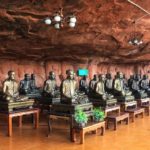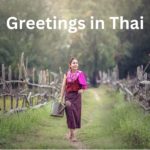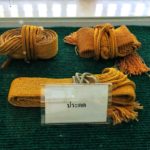Dying Well the Buddhist Way in Thailand
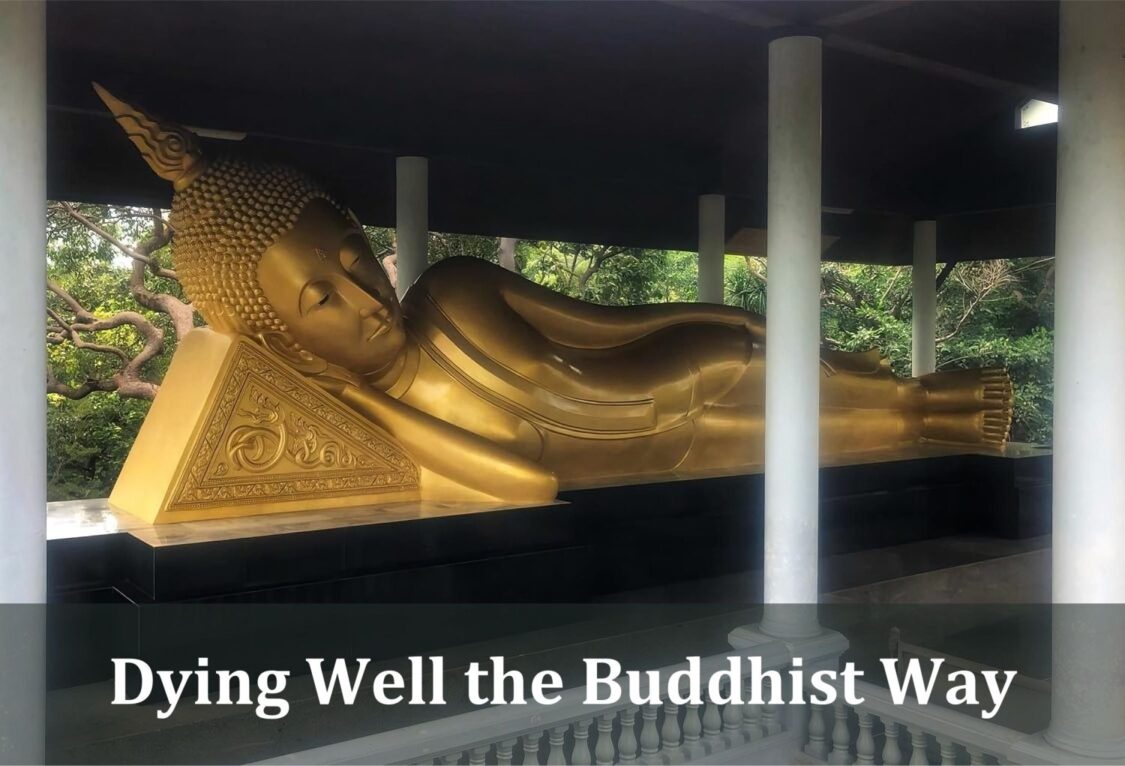
Buddhist monks in Thailand often teach that death is the most important test we take in life. Other tests can be taken over and over again, always with an opportunity for improvement. But we have only one chance at the test called death. And it’s a test we may be forced to take unexpectedly at any time.
Despite death being the greatest test, few people prepare themselves. Most spend their lives in trivial pursuits, wasting countless hours watching TV, scrolling social media, arguing over pointless things, and playing games. In other words, living as though they will never die.
When old age arrives and death is fast approaching, modern society encourages the preserving of life at all costs, regardless of its quality — always refusing to acknowledge the importance of death as “life’s greatest test,” or as it’s said in Thai: “bòt tót-sòp têe yîng-yài nai chee-wít” (บททดสอบที่ยิ่งใหญ่ที่สุดในชีวิต).
Despite the teachings of Thailand’s Buddhist monks, many Thais today have embraced the Western view of death as something scary and terrible, and that any preparation for it while one is still healthy and fit is weird or morbid.
This is due to the fact that even though Thailand is an overwhelmingly Buddhist country, where religious traditions still play an important role in the lives of rural villagers, the increasingly Westernized middle-class residents of the cities, and the younger generations who live on the internet, often have separated themselves from life’s spiritual dimension, dismissing the beliefs of the “chaao bâan” (ชาวบ้าน) or rural folk as old “superstitions”.
Leading Thai monks are aware of this situation, and have begun focusing their attention on “life’s greatest test” and how they can help people “face death calmly” (เผชิญความตายอยางสงบ), without fear. They also have emphasized the importance of those Buddhist rituals which are to be conducted prior to and after the death of a loved one.
One notable example of this effort is the work being done by Phra Ajahn Sanprach Panyakamo (พระอาจารย์แสนปราชญ์ ปัญญาคโม) of Wat Pa Non Sa-at in Nakhon Ratchasima (Northeast Thailand).
Ajahn Sanprach has launched a hospice care facility at his temple. It teaches “How to Die Well the Buddhist Way,” or as it’s said in Thai: “Dtaai Dee Wí-tĕe Phút” (ตายดีวิถีพุทธ). He hopes the facility will serve as a model for end of life care throughout Thailand.
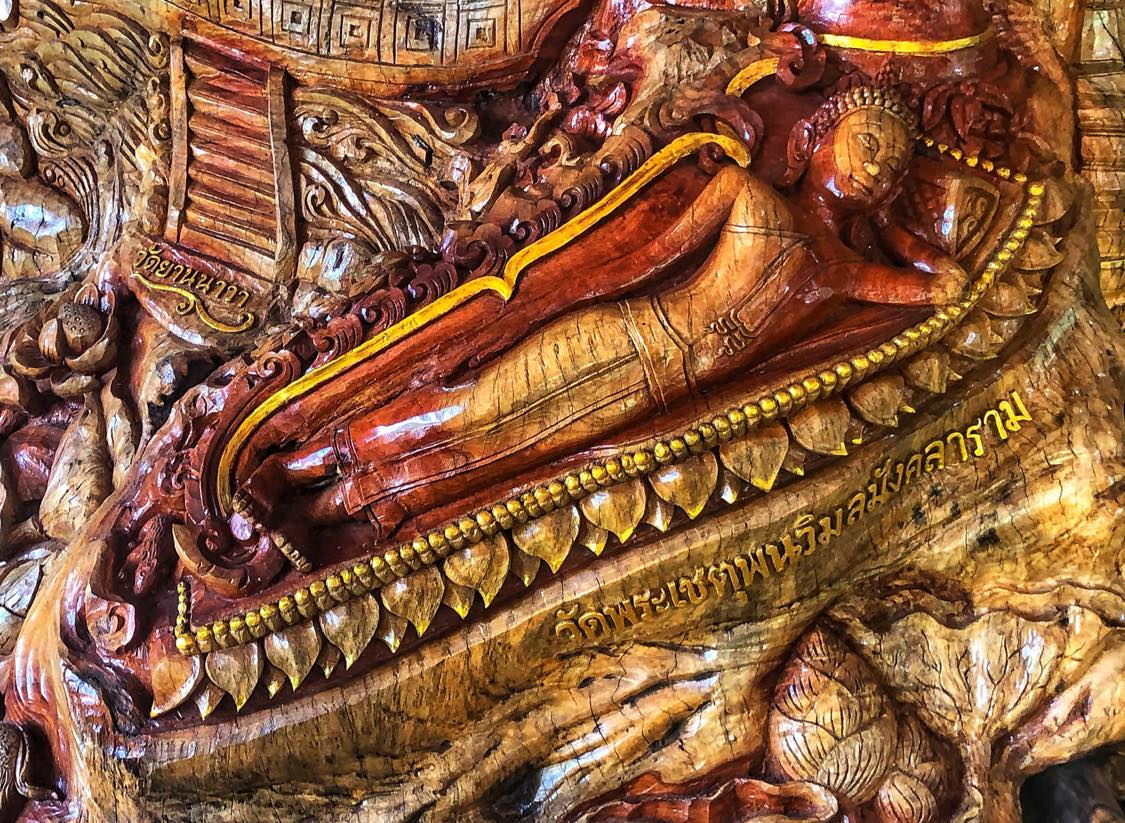
Wat Pa Non Sa-at Buddhist Hospice Care in Korat
The Thai hospice at Wat Pa Non Sa-at (วัดป่าโนนสะอาด) cares for both terminally ill monks, as well as poor local villagers who are near the end of life. Some of the core benefits that the hospice’s residents experience via mindfulness and meditation exercises include:
1. The ability to recognize and embrace of the good, which blocks out the bad (in both thought and deeds).
2. The development of equanimity toward the world around them, with the realization that nothing is lost in death, but that much is to be gained.
3. A growing awareness of the wisdom of the 4 Noble Truths, and the manner in which the 8 Fold Path can be taken in their final days in this life.
4. A recognition of the impermanence of all things in this earthy life, which point toward the eternal things of the spirit.
5. The ability to separate their eternal spiritual self from the sufferings of your transitory body.
6. A welcome relief from desire and the desperate clutching onto things which have passed or are soon to pass (which is all earthly things when see from the distance of millennia).
Residents of Ajahn Sanprach’s Thai hospice in Nakhon Ratchasima (Korat) are encouraged to wake up at 4am every day, and to practice mindfulness and meditation for 30% of their waking hours (including 30 minutes before bedtime) — which comes out to about 4.5 hours every day.
This preparation for taking “life’s greatest test” should, of course, not be postponed until one becomes terminally ill and enters a hospice. It should be undertaken now. While many may not have 4.5 hours to dedicate to mindfulness and meditation, even 1 hour a day spent on “Dying Well the Buddhist Way” can entirely transform your life for the better — making your time spent on earth a joyful, useful, and accomplished one, regardless of when the final test taker comes.
- Affirmations in Buddhism & Thailand - June 7, 2025
- Speak Thai Naturally Without the Gymnastics - April 20, 2025
- The Best Learn Thai Podcast and YouTube Channel - April 10, 2025


